

When 2 monkeys were paid unequally for the same task they revolted against their 'boss'
Other animals understand fairness. Why is it so hard for the rest of us?

Injustice and inequality dominate the discourse, and rightfully so. We are in the midst of a pandemic, on the brink of economic collapse, and looking toward a future ravaged by climate change. The most vulnerable among us being the most afflicted. Angry? Science says that's only natural.
A video went viral of an experiment involving two capuchin monkeys in neighboring cages. You should watch the video, but here is a basic breakdown of the experiment. Upon completion of a task both monkeys are given cucumber. The researcher, Frans de Waal, says that if both monkeys are given cucumber, "they're perfectly willing to do this 25 times in a row."
But things change when one monkey is paid more than the other. After seeing his neighbor get a grape for doing the same task, the monkey flat out rejects cucumber. He hucks it back at the researcher and slaps the ground. This monkey wants grapes. In his TEDtalk , de Waal comments, "So this is basically the Wall Street protest that you see here."
The conclusion of the experiment is that even animals understand injustice. This was met with strong criticism from philosophers. De Waal says, "One philosopher even wrote us that it was impossible that monkeys had a sense of fairness because fairness was invented during the French Revolution." Appropriately, the TED audience laughs at this idea.
Problems in the modern world are intersectional and complex. Solutions to these problems are hard. It takes building coalitions through solidarity and aiming those at reform. But that's not always our first response to crisis. Why instead do we rant to our family members and "go off" on social media? Because, just like the capuchins, we have a visceral and emotional reaction to unfairness.
Our emotional response to injustice is not a weakness though. De Waal's mention of the Occupy Wall Street movement is a perfect example of this. Emotional reactions give us the drive to do things like camp out in a park for months on end. Activism without emotion is like a plane without wings (no that wouldn't be a rocket; they work differently).
Probably the most encouraging thing de Waal describes in his TEDtalk is when his colleague, Sarah Brosnan, ran the experiment with chimpanzees. Apparently, it's common for the chimp who is given the grape to refuse the unfair treatment until the other chimp is also given a grape. You heard that right. Chimps reject privilege. Booya.
De Waal concludes his talk by saying that the monkeys' rejection of unfairness shows that morality doesn't come from a learned belief system. Our desire for fairness is not some post-enlightenment concept dreamt up by stinky French philosophers. And we didn't need Adam and Eve eating that fruit to get it. It's natural and ancient. It's like smiling when someone smiles or catching a yawn. When you see injustice, you'll feel it.
More on Good.is
Equal Pay for Women: What Happened to the 1963 Equal Pay Act ...
The Equal Pay Act of 1963 | U.S. Equal Employment Opportunity ...
Equal Pay Act - HISTORY
Barack Obama Just Made A Huge Final Push For Equal Pay - GOOD
Why We Must 'Lean in' to Workplace Pay Inequity - GOOD
Here's What Women Need To Know About Securing Their Fair ...
In France, your boss can't email you on the weekend - GOOD

We Know What Baby Names Are Popular. Here Are The Ones That Are Almost Extinct

He left for a space mission. When he returned, his whole country was gone.

Here's why one island wants to abolish time and not live by the clock

Two ‘identical’ baseball players with the same name took a DNA test—and it got even more bizarre

Receptionist serves sassy response after customer demands 4th-floor room at 3-floor hotel
- Israel-Gaza War
- War in Ukraine
- US & Canada
- UK Politics
- N. Ireland Politics
- Scotland Politics
- Wales Politics
- Latin America
- Middle East
- In Pictures
- BBC InDepth
- Executive Lounge
- Technology of Business
- Future of Business
- Science & Health
- Artificial Intelligence
- AI v the Mind
- Film & TV
- Art & Design
- Entertainment News
- Arts in Motion
- Destinations
- Australia and Pacific
- Caribbean & Bermuda
- Central America
- North America
- South America
- World’s Table
- Culture & Experiences
- The SpeciaList
- Natural Wonders
- Weather & Science
- Climate Solutions
- Sustainable Business
- Green Living
The odd thing that happens when injustice benefits you

It stings when life’s not fair – but what happens if it means we profit? As Tom Stafford writes, some people may perform unexpected self-sabotage.
Frans de Waal, a professor of primate behaviour at Emory University, is the unlikely star of a viral video. His academic's physique, grey jumper and glasses aren't the usual stuff of a YouTube sensation. But de Waal's research with monkeys, and its implications for human nature, caught the imagination of millions of people.
It began with a TED talk in which de Waal showed the results of one experiment that involved paying two monkeys unequally (see video, below). Capuchin monkeys that lived together were taken to neighbouring cages and trained to hand over small stones in return for food rewards. The researchers found that a typical monkey would happily hand over stone after stone when it was rewarded for each exchange with a slice of cucumber.

But capuchin monkeys prefer grapes to cucumber slices. If the researchers paid one of the monkeys in grapes instead, the monkey in the neighbouring cage – previously happy to work for cucumber – became agitated and refused to accept payment in cucumber slices. What had once been acceptable soon became unacceptable when it was clear a neighbour was getting a better reward for the same effort.
The highlight of the video is when the poorly paid monkey throws the cucumber back at the lab assistant trying to offer it as a reward.
You don't have to be a psychologist to know that humans can feel very much like the poorly paid monkey. Injustice stings. These results and others like them, argues de Waal, show that moral sentiments are part of our biological inheritance, a consequence of an ancestral life that was dominated by egalitarian group living – and the need for harmony between members of the group.
That's a theory, and de Waal's result definitely shows that our evolutionary cousins, the monkeys, are strongly influenced by social comparisons. But the experiment doesn't really provide strong evidence that monkeys want justice. The underpaid monkey gets angry, but we've no evidence that the better-paid monkey is unhappy about the situation. In humans, by comparison, we can find stronger evidence that an instinct for fairness can lurk inside the psyche of even the most competitive of us.

The players in the National Basketball Association in the USA rank as some of the highest earning sportspeople in the world. In the 2007-08 season the best paid of them received salaries in excess of $20 million (£13.5 million), and more than 50 members of the league had salaries of $10 million (£6.7 million) or more.
The 2007-08 season is interesting because that is when psychologists Graeme Haynes and Thomas Gilovich reviewed recordings of more than 100 NBA games, looking for occasions that fouls were called by the referees when it was clear to the players that no foul had actually been committed . Whenever a foul is called, the wronged player gets a number of free throws – chances to score points for their team. Haynes and Gilovich were interested in how these ultra-competitive, highly paid sportsmen reacted to being awarded free throws when they knew that they didn’t really deserve them.
Missed shot
These guys had every incentive to make the most of the free throws, however unfairly gained: after all, they make their living from winning, and the points gained from free throws could settle a match. Yet Haynes and Gilovich found that players’ accuracy from unfairly awarded free throws was unusually low. It was down compared to the free throw league average, and down compared to the individual players' free throw personal averages. Accuracy on unfairly awarded free throws was lowest when the player’s team was ahead and didn’t need the points so much. But tellingly, it was also lower than average when the team was behind and in need of points – whether honestly or dishonestly gained.
If players in one of the most competitive and best-paid sports can apparently be put off by guilt, it suggests to me that an instinct for fairness can survive even the most ruthless environments.

At the end of the monkey clip, de Waal jokes that the behaviour parallels the way people have staged protests against Wall Street, and the greed they see there. And he's right that our discomfort with unequal pay may be as deeply set as the monkey's.
Yet perhaps these feelings run even deeper. The analysis of the basketball players suggests that when we stand to benefit from injustices – even if they can help justify multi-million dollar salaries – some part of us is uncomfortable with the situation, and may even work to undermine that advantage.
So don't give up on the bankers and the multi-millionaire athletes just yet.
If you have an everyday psychological phenomenon you'd like to see written about in these columns please get in touch with @tomstafford or [email protected] .
Share this story on Facebook , Google+ or Twitter .
Thank you for visiting nature.com. You are using a browser version with limited support for CSS. To obtain the best experience, we recommend you use a more up to date browser (or turn off compatibility mode in Internet Explorer). In the meantime, to ensure continued support, we are displaying the site without styles and JavaScript.
- View all journals
- Explore content
- About the journal
- Publish with us
- Sign up for alerts
- Published: 18 September 2003
Monkeys reject unequal pay
- Sarah F. Brosnan 1 &
- Frans B. M. de Waal 1
Nature volume 425 , pages 297–299 ( 2003 ) Cite this article
28k Accesses
759 Citations
636 Altmetric
Metrics details
During the evolution of cooperation it may have become critical for individuals to compare their own efforts and pay-offs with those of others. Negative reactions may occur when expectations are violated. One theory proposes that aversion to inequity can explain human cooperation within the bounds of the rational choice model 1 , and may in fact be more inclusive than previous explanations 2 , 3 , 4 , 5 , 6 , 7 , 8 . Although there exists substantial cultural variation in its particulars, this ‘sense of fairness’ is probably a human universal 9 , 10 that has been shown to prevail in a wide variety of circumstances 11 , 12 , 13 . However, we are not the only cooperative animals 14 , hence inequity aversion may not be uniquely human. Many highly cooperative nonhuman species seem guided by a set of expectations about the outcome of cooperation and the division of resources 15 , 16 . Here we demonstrate that a nonhuman primate, the brown capuchin monkey ( Cebus apella ), responds negatively to unequal reward distribution in exchanges with a human experimenter. Monkeys refused to participate if they witnessed a conspecific obtain a more attractive reward for equal effort, an effect amplified if the partner received such a reward without any effort at all. These reactions support an early evolutionary origin of inequity aversion.
This is a preview of subscription content, access via your institution
Access options
Subscribe to this journal
Receive 51 print issues and online access
$199.00 per year
only $3.90 per issue
Buy this article
- Purchase on SpringerLink
- Instant access to full article PDF
Prices may be subject to local taxes which are calculated during checkout

Similar content being viewed by others
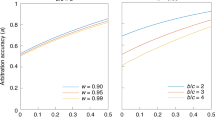
Arbitration supports reciprocity when there are frequent perception errors
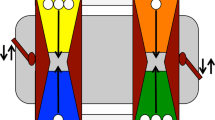
Children avoid inefficient but fair partners in a cooperative game
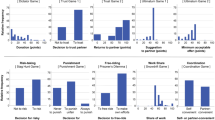
Unravelling the many facets of human cooperation in an experimental study
Fehr, E. & Schmidt, K. M. A theory of fairness, competition, and cooperation. Quart. J. Econ. 114 , 817–868 (1999)
Article Google Scholar
Andreoni, J. Cooperation in public-goods experiments: kindness or confusion? Am. Econ. Rev. 85 , 891–904 (1995)
Google Scholar
Fehr, E. & Gachter, S. The puzzle of human cooperation: reply. Nature 421 , 912 (2003)
Article ADS CAS Google Scholar
Fehr, E. & Gachter, S. Altruistic punishment in humans. Nature 415 , 137–140 (2002)
Johnson, D. D. P., Stopka, P. & Knights, S. The puzzle of human cooperation. Nature 421 , 911–912 (2003)
Milinski, M., Semmann, D. & Krambeck, H.-J. Reputation helps solve the ‘tragedy of the commons’. Nature 415 , 424–426 (2002)
Article ADS Google Scholar
Roberts, G. & Sherratt, T. N. Development of cooperative relationships through increasing investment. Nature 394 , 175–179 (1998)
Wenekind, C. & Milinski, M. Cooperation through image scoring in humans. Science 200 , 850–852 (2000)
Henrich, J. et al. In search of Homo economicus: behavioral experiments in 15 small-scale societies. Am. Econ. Rev. 91 , 73–78 (2001)
Henrich, J. Does culture matter in economic behavior? Ultimatum game bargaining among the Machiguenga of the Peruvian Amazon. Am. Econ. Rev. 90 , 973–979 (2000)
Fehr, E. & Rockenbach, B. Detrimental effects of sanctions on human altruism. Nature 422 , 137–140 (2003)
Kahneman, D., Knetsch, J. L. & Thaler, R. Fairness as a constraint on profit seeking: entitlements in the market. Am. Econ. Rev. 76 , 728–741 (1986)
Zizzo, D. J. & Oswald, A. Are people willing to pay to reduce other's incomes? Annales d'Econ. Stat. 63–64 , 39–62 (2001)
Dugatkin, L. A. Cooperation Among Animals: An Evolutionary Perspective (Oxford Univ. Press, New York, 1997)
de Waal, F. B. M. Good Natured: The Origins of Right and Wrong in Humans and Other Animals (Harvard Univ. Press, Cambridge, Massachusetts, 1996)
de Waal, F. B. M. & Davis, J. M. Capuchin cognitive ecology: cooperation based on projected returns. Neuropsychologia 1492 , 1–8 (2002)
di Bitetti, M. S. Evidence for an important social role of allogrooming in a platyrrhine primate. Anim. Behav. 54 , 199–211 (1997)
de Waal, F. B. M. Food transfers through mesh in brown capuchins. J. Comp. Psychol. 111 , 370–378 (1997)
Article CAS Google Scholar
Tinklepaugh, O. L. An experimental study of representative factors in monkeys. J. Comp. Psychol. 8 , 197–236 (1928)
Andreoni, J., Brown, P. M. & Vesterlund, L. What makes an allocation fair? Some experimental evidence. Games Econ. Behav. 40 , 1–24 (2002)
Falk, A., Fehr, E. & Fischbacher, U. On the nature of fair behavior. Econ. Inq. 41 , 20–26 (2003)
Frank, R. H. in Evolution and the Capacity for Commitment (ed. Nesse, R. M.) 57–76 (Russell Sage Foundation, New York, 2001)
Sanfey, A. G., Rilling, J. K., Aronson, J. A., Nystrom, L. E. & Cohen, J. D. The neural basis of economic decision-making in the Ultimatum game. Science 300 , 1755–1758 (2003)
Frank, R. H. Passions Within Reason: The Strategic Role of the Emotions (W. W. Norton, New York, 1988)
Hirschleifer, J. in The Latest on the Best: Essays in Evolution and Optimality (ed. Dupre, J.) 307–326 (MIT Press, Cambridge, Massachusetts, 1987)
Nesse, R. M. in Evolution and the Capacity for Commitment (ed. Nesse, R. M.) 1–44 (Russell Sage Foundation, New York, 2001)
Dugatkin, L. A. in Evolution and the Capacity for Commitment (ed. Nesse, R. M.) 120–137 (Russell Sage Foundation, New York, 2001)
de Waal, F. B. M. & Berger, M. L. Payment for labour in monkeys. Nature 404 , 563 (2000)
Mendres, K. A. & de Waal, F. B. M. Capuchins do cooperate: the advantage of an intuitive task. Anim. Behav. 60 , 523–529 (2000)
Brosnan, S. F. & de Waal, F. B. M. A proximate perspective on reciprocal altruism. Hum. Nat. 13 , 129–152 (2002)
Download references
Acknowledgements
We thank L. Antonucci, K. Bouxsein, J. Davis, C. Freeman and A. Katz for help with data collection and coding, L. Ruttan for comments on the manuscript and R. Earley for statistical advice. Photo by F.d.W.
Author information
Authors and affiliations.
Living Links, Yerkes National Primate Research Center, Emory University, Atlanta, Georgia, 30329, USA
Sarah F. Brosnan & Frans B. M. de Waal
You can also search for this author in PubMed Google Scholar
Ethics declarations
Competing interests.
The authors declare that they have no competing financial interests.
Rights and permissions
Reprints and permissions
About this article
Cite this article.
Brosnan, S., de Waal, F. Monkeys reject unequal pay. Nature 425 , 297–299 (2003). https://doi.org/10.1038/nature01963
Download citation
Received : 14 May 2003
Accepted : 23 July 2003
Issue Date : 18 September 2003
DOI : https://doi.org/10.1038/nature01963
Share this article
Anyone you share the following link with will be able to read this content:
Sorry, a shareable link is not currently available for this article.
Provided by the Springer Nature SharedIt content-sharing initiative
This article is cited by
Children’s distributive justice behavior probably not matching their understanding: a systematic review.
- Tianyi Cheng
Current Psychology (2024)
Perceived reward attainability may underlie dogs’ responses in inequity paradigms
- Jim McGetrick
- Hugo Peters
- Friederike Range
Scientific Reports (2023)

Change-Management als Sisyphosarbeit
Gruppe. Interaktion. Organisation. Zeitschrift für Angewandte Organisationspsychologie (GIO) (2023)
Humans, the Norm-Breakers
- Kristin Andrews
Biology & Philosophy (2023)
Are you better than me? Social comparisons in carrion crows (Corvus corone)
- I. G. Federspiel
Animal Cognition (2023)
Quick links
- Explore articles by subject
- Guide to authors
- Editorial policies
Sign up for the Nature Briefing newsletter — what matters in science, free to your inbox daily.
Monkeys for equal pay (and every cat for itself)
In a campus appearance hosted by UC Berkeley’s Greater Good Science Center, primatologist Frans de Waal discussed his research on "the emotional side of animal behavior" — behavior, he insists, more like our own than some humans admit.
By Barry Bergman

March 11, 2015
A philosopher once wrote to Frans de Waal, explaining the flaw in the primatologist’s findings on what he calls “the emotional side of animal behavior.”
It was impossible that monkeys have a sense of fairness, the philosopher said, “because the sense of fairness was discovered during the French Revolution.”

Frans de Waal: Like humans, along with aggression, chimps’ behavior includes reconciliation, empathy and consolation. (UC Berkeley photos by Barry Bergman)
On Monday, in a lively campus appearance hosted by UC Berkeley’s Greater Good Science Center, de Waal offered compelling evidence that capuchin monkeys — namesakes, though presumably not co-religionists, of an order of Catholic friars — not only recognize inequity, but are quick to challenge it.
Before a packed house at Sibley Auditorium, de Waal played a video of an experiment he’d done with pairs of capuchin monkeys, housed side by side in glass cages. In return for handing a pebble to a researcher, one monkey receives a bland piece of cucumber, which she’s happy to get — until she sees that her partner’s reward for the very same task is a tasty grape.
She gives it another try, but instead of a grape gets cucumber again. This time she hurls the cuke back at the researcher, rattles her cage, pounds the floor in angry protest. It’s a tantrum similar, in fact — as another video showed — to that of a human toddler who sees her older brother get a cookie, only to get half herself.
During de Waal’s experiments, he said, monkeys rewarded equitably rejected the cucumber just 5 percent of the time. If their partners received a grape, however, they refused their lower pay at a rate of 50 percent. And when partners were given a grape “for free,” without even having to pick up a pebble, rejections soared.
Such behavior, said the Dutch-born de Waal, now at Emory University, is further evidence that humans are not the only species to boast a moral code, and that morality is separate from God and religion. Instead, it’s related to what he calls the “prosocial tendencies” of primates and other animals, a self-awareness — and awareness of others — that gives rise to emotional responses like reconciliation, empathy and consolation.
“I’ve seen chimps kill each other,” said de Waal, “so I’m very fully aware of their competitive side.” After studying aggression in chimps as a student in the Netherlands, though, “It struck me that after fights they would come together, they kissed and embraced each other, and that was actually more interesting than the aggression itself.”

De Waal on the notion that humans are special: “I don’t believe a word of it.”
And chimps aren’t the only nonhuman animals with a bent for reconciliation. “There’s only one mammal that has been tested where it has not been found, and that’s a mammal many of you have at home,” de Waal said. “It’s a domestic cat.
“I’m a big cat lover,” he added, “and I’m still waiting for the magical moment.”
The feline, he explained, is a “solitary hunter,” and so has less need to work in tandem with partners, as primates and elephants have proved able to do in his and others’ experiments. But he rejects the distinction many people make between humans and other species, “that what animals do must be instinctive, and what we do is cultural.”
He described the difference between two kinds of macaques, rhesus monkeys and stump-tails, and the cultural influence one can have on the other. Rhesus monkeys, he said, are “very hierarchical,” prone to punishing subordinates and not keen on reconciliation. Stump-tailed monkeys, by contrast, are “very tolerant and engaging.”
“I usually compare them as the New Yorkers and the Californians,” he said.
In one experiment, juvenile stump-tailed and rhesus monkeys were housed together for five months — during which the stump-tails’ mellowness rubbed off on their more belligerent cousins.
“What we’re showing here is how strongly reconciliation behavior in rhesus monkeys can be affected by the social environment,” said de Waal. “Which means that humans, of course, can also be affected by the social environment.”
He cited studies that reveal “big cultural differences” between America and Japan, where children reconcile “much more” than their U.S. counterparts — likely due, according to researchers, to the way teachers in each country handle conflict in class and on the playground.
“Teachers in the U.S., as soon as there’s a fight among kids they step in and stop it,” he said, while in Japan “they let them fight, and reconcile on their own.”
‘The bonobo is an atheist’
During his hourlong talk, followed by questions from the audience, de Waal employed data, humor and videos to break down commonly held beliefs about the differences between human and nonhuman animals. There were chimps showing empathy by unselfishly caring for their partners’ well-being, for example, and a pair of elephants figuring out how to haul in a tricky feeding apparatus by coordinating their efforts.
And while his listeners were rapt throughout, they witnessed plenty of evidence of “yawn contagion,” which, like other manifestations of empathy — human and not — rises and falls in relation to others’ perceived “otherness.”
De Waal, a prolific author whose most recent book is The Bonobo and the Atheist: In Search of Humanism Among the Primates, bristles at the notion that “humans are special,” a conceit, he said, prevalent in the literature of economics and anthropology: “I don’t believe a word of it.”
“The bonobo is an atheist, I think,” he said Monday. “Although maybe the bonobo would be diplomatic and say, ‘I am an agnostic.’
“I’m interested in the evolution of morality,” he explained. “And each time I talk about the evolution of morality people say, well, it comes from God, or it comes from religion. And I’m sort of tired of that. Because I think our current religions are just a couple of thousand years old, and I cannot imagine that 200,000 years ago our ancestors had no rules of right and wrong, or fairness, or whatever. So morality must be much older.”
At the least, he might have added, it predated the French Revolution.
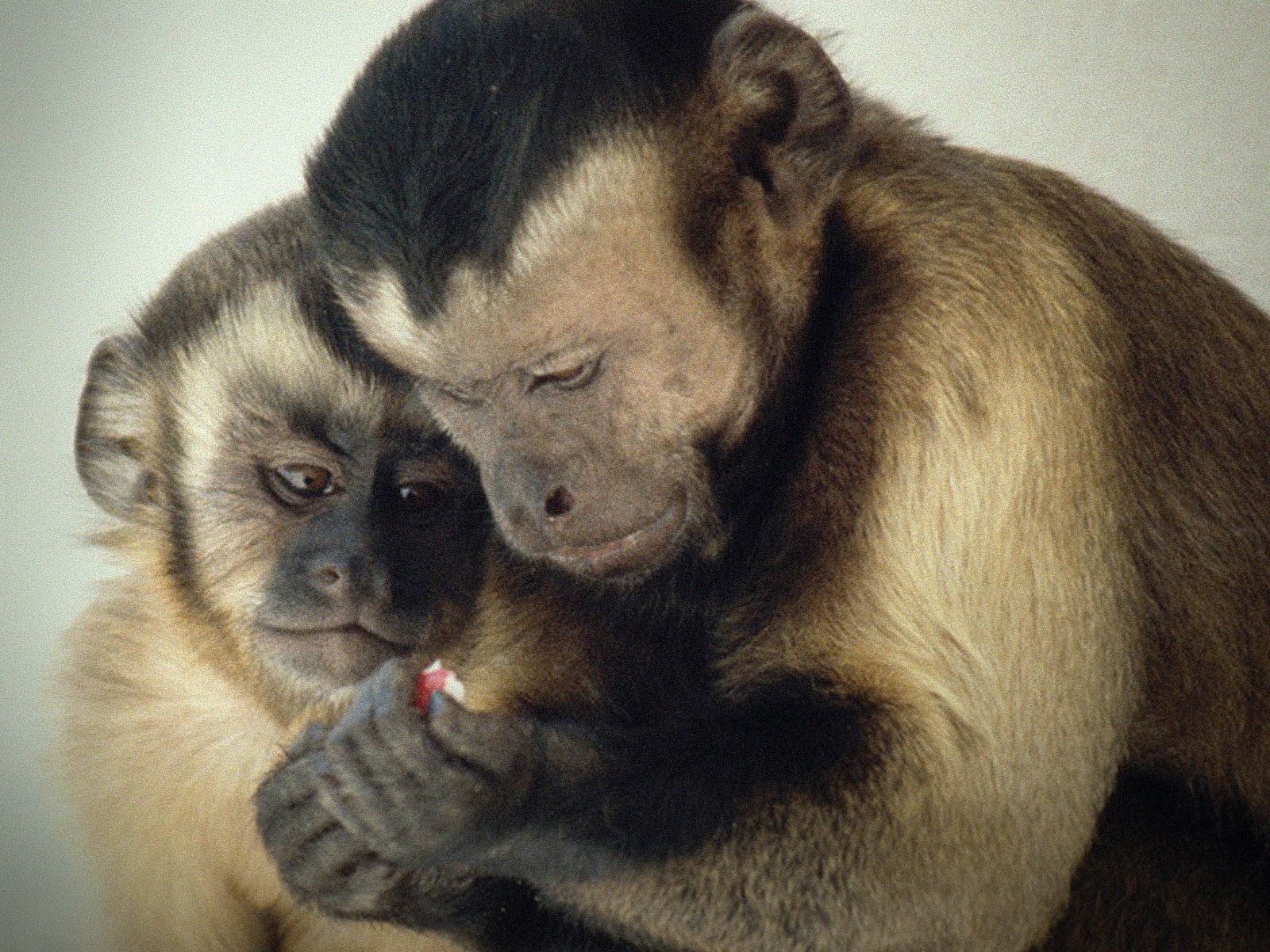
TED is supported by ads and partners 00:00
Moral behavior in animals
2 monkeys were paid unequally; see what happens next
Sometimes you get the grapes; other times it's just cucumber..
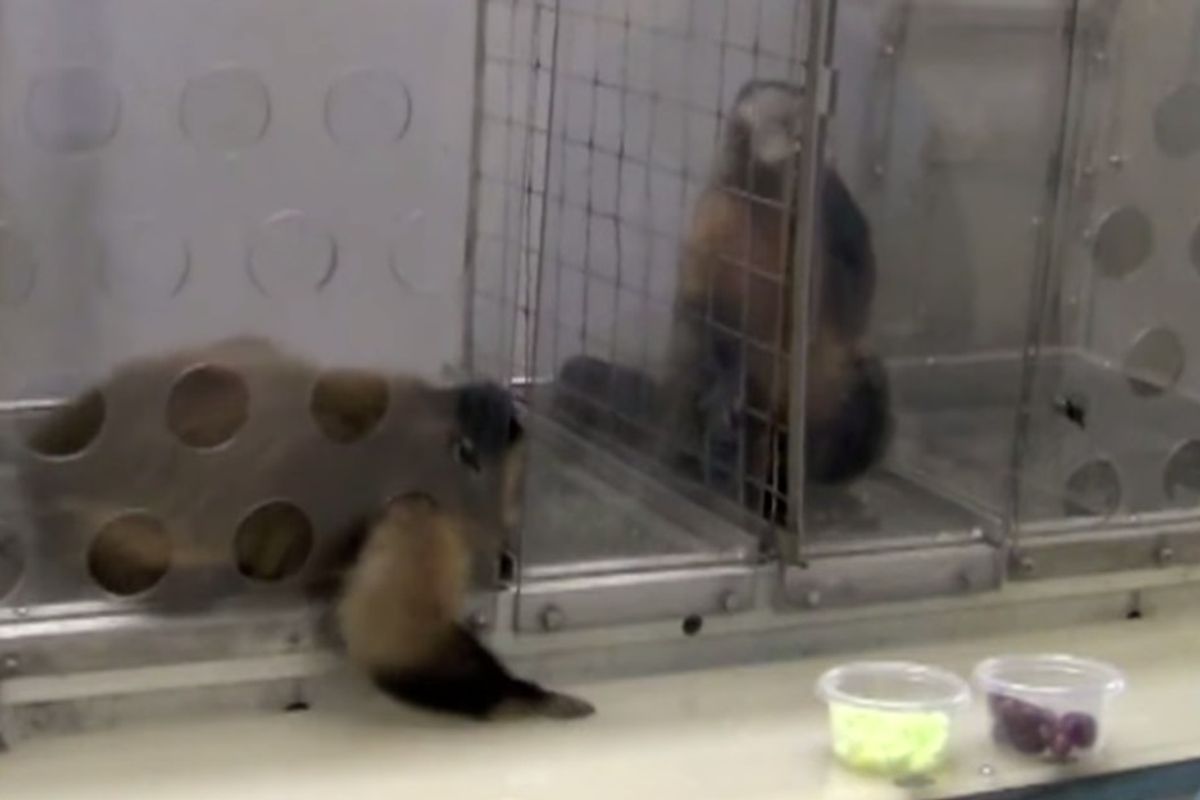
A study on fairness packs a punch.
This is short, but it definitely packs a punch.
Be sure to pay close attention from 1:34 to 2:06; it's like equal parts "America's Funniest Home Videos" and "Econ 101."
And nearly 10 years after it first premiered, the message remains as powerful as when we first shared it.
Watch the full video below:
This article originally appeared on 4.4.13
- Police receive a prank 911 call. The suspect? An adorable baby monkey. ›
- Baby capuchin monkey makes prank 911 call from zoo - Upworthy ›
- Boost your mood and your mind with a daily dose of Psychedelic Water - Upworthy ›
5 wholesome things to do this weekend: Stream this movie, make your own bucket list, and more
Easy and fun things you can do this weekend that will make your life (and the people around you) happier.
Blink, a new documentary from NatGeo, is now streaming on Disney+ and Hulu.
It’s December, and we’re all currently in the thick of it: Wrapping presents, baking cookies, and scouring the toy aisles for that must-have gift of the season. But in the middle of all the holiday chaos, it’s easy to lose sight on what the season is really about: making meaningful memories with our loved ones.
From volunteering to building a bucket list to watching maybe the most uplifting documentary we’ve ever seen, we’ve put together five simple and wholesome activities that will leave you and the entire family a little more connected and a whole lot happier. Ready to make memories that last? Let’s dive in.
Make a difference close to home
littlefreepantry.org
A 2023 analysis from the journal Frontiers in Psychology showed that people who regularly volunteered in their communities had greater self-esteem, more self-reported happiness, and a greater sense of personal fulfillment. (Um, yes, please.) If that sounds like something you want to experience as well, then you're in luck: There's no better time to lend a helping hand than during the holiday season. You could shovel a neighbor's driveway, buy presents for kids in need , or—who knows? You might want to be super ambitious, like setting up a food pantry or volunteering as an "interim parent" like this woman , who cares for babies and young children while their adoptions are being finalized. The sky is the limit.
Watch this feel-good, family flick
Get the tissues ready: This is maybe the most uplifting documentary you’re ever going to see . The film, “Blink,” follows a family with four children, three of whom have a rare genetic disease called retinitis pigmentosa (RP). With RP, the cells of the retina slowly die off, leaving a person with tunnel vision that shrinks until they are nearly—or totally—blind.
The parents, Edith Lemay and Sébastien Pelletier, decide to gift their children with incredible sights and experiences so that they can treasure them forever, even after their sight is gone. The film follows the Pelletier family as they make a bucket list and set out on a year-long journey across 24 countries to make some incredible memories.
For some seriously wholesome holiday goodness, stream "Blink," now on Disney+ and Hulu.
Make your very own bucket list
To fulfill their dreams, the Pelletier family in the National Geographic documentary "Blink" created a bucket list with every kind of memory they wanted to fulfill, from seeing a sunrise on a mountain to "drink[ing] juice on a camel." (Because, sure. Why not?) Spend some time thinking of your own dreams you'd like to fufill. This is the perfect activity if you're looking for something creative and family-friendly—just gather the kids around for a brainstorming sesh and let the ideas fly. You might not actually complete all of these items (or any of them), but dreaming them up and spending time together is half the fun.
Spread some holiday cheer
Whatever your family’s ages and interests, there are a thousand different ways to spread holiday cheer this season, whether you’re singing Christmas carols door-to-door or just exchanging a warm holiday greeting. If you need inspiration, look no further than John Reichart, 74, who (just like the Pelletier kids) wants to create new memories for his family while he's still able to. Following his wife Joan’s Alzheimer’s diagnosis, Reichart set out to decorate every house in their neighborhood with lights and decorations purchased out of his own pocket. Simply inspirational.
Make someone's life a little easier.
I need this goober in my life. by u/kenistod in MadeMeSmile
The holiday season is all about giving and togetherness, but let’s be real, it’s no easy feat. Sometimes we can get stressed, overwhelmed, and exhausted. One surefire way to make this world a better place is to think of ways to make someone’s life just a little easier, like this mom who picks up her teenager’s bedroom every morning after he goes to school. You could even send a note of encouragement to someone who needs it, or bake some treats and leave them out for a hangry delivery driver.
It’s probably easier than you think to spread the love and leave the world a little happier than you found it.
- New Pixar short film on Disney Plus has a non-verbal, autistic girl of ... ›
- Nat Geo's 'Blink' tracks a family finding beauty while facing blindness as they travel the globe ›
- An old male bald eagle who adopted a rock as an egg has just been ... ›
- Mom traveling solo with toddler shocked by the outpouring help she got from total strangers ›
People are supporting a dad whose wife named their newborn while he went out for coffee
He didn't like the name, either. shouldn’t it be a 50/50 decision.
A mother smiles proudly after naming her baby.
Most people believe that both parents have an equal right to choose their baby’s name and that it should result from an agreement between both parties. That doesn't mean it’s always easy for both people to agree on the same name , but look, if you’re going to be a successful parent, you must know how to make compromises occasionally. Starting the job with your heels dug in does not bode well for anyone.
That’s why the following story is interesting. It shows what happens when a mother decides she can make the decision all by herself and what the fallout is like when her husband and his family find out. The story was recently shared on social media , and the commenters were shocked that she wasn’t sure if she was in the wrong.
"So, my (32F) husband (33M) and I just had our first baby girl a couple of weeks ago,” she begins the story. “We’d been going back and forth on names during my entire pregnancy. I really wanted to name her Eleanor after my late grandmother, who basically raised me when my parents weren’t around. She was my hero, and losing her last year was devastating. Honoring her felt deeply important.”
The woman’s husband preferred modern names such as Nova or Ember, which the mother just “couldn’t connect with,” so they never compromised.
“On the day our daughter was born, while my husband stepped out to grab coffee , a nurse asked if we had a name for the birth certificate. I know I should have waited, but I was emotional and felt this rush of conviction. I just blurted out, ‘Eleanor.’”
When the husband returned with the coffee, he was “furious.”
“He said I’d blindsided him, robbed him of having a say, and that our daughter would hate her 'old lady' name. His family is also calling me manipulative. I feel terrible about the timing and how it all went down, but it’s not like we hadn’t discussed Eleanor before. I just feel like I honored a name that truly mattered to me when he wouldn’t budge.”
The mother asked the commenters if the father was overreacting because “we couldn’t find common ground.”
The commenters overwhelmingly supported the father in the situation. “You made a unilateral decision about your shared child,” the top commenter wrote. “You literally started her life by using her as a centerpiece for conflict with your husband. You also isolated her from your husband during the first major decision regarding her. What a terrible way to start her life.”
“‘…it’s not like we hadn’t discussed Eleanor before.’ You discussed it and he said no. Personally, I think the name Eleanor is lovely, but that’s not the issue,” another commenter noted. “You unilaterally made a decision —a decision a you knew your husband disagreed with—about your—both of your—child. Your giving birth doesn’t make this child any less his. Your husband and his family are absolutely right. You blindsided him."
However, a few commenters believed whoever birthed the child had the right to pick the name, even if the father disagreed. “This might be the only daughter you have and if he can’t make it meaningful for you when you just risked your life for this baby and let you have the win then idk,” one of the few supporters of the mother wrote. ”I would let him pick the middle name. Trendy names are overrated.”
The woman who posted her story has yet to follow up and share what happened next, but let’s hope she took the commenters’ advice and apologized to her husband and changed the baby's name. Most agree that it's not fair for him to call his daughter a name he doesn’t like for the rest of their lives and it will always be a sore spot in their relationship. It’s best to bring a child into a family where everyone is on the same page and agrees on the things that matter most.
- A shocking amount of parents admit to feeling baby name regret, study finds ›
- Woman fights to give her baby a name that her husband says is 'abusive' ›
- People are discussing when it's okay and not okay to use someone else's baby name ›
Hanson's gorgeous acapella Bee Gees cover shows there's nothing like family harmony
They're so much more than the "mmmbop" band..
Hanson, singing acapella.
In “How Can You Mend a Broken Heart,” the 2020 documentary about the Bee Gees , Noel Gallagher of Oasis noted that there is something special about when brothers harmonize. He should know since he founded Oasis in 1991 with his brother Liam . “When you got brothers singing, it’s like an instrument that no one else can buy,” Gallagher said. “You can’t go buy that sound in a shop. You can’t sing like the Bee Gees because when you got family members singing together, it’s unique.”
The Bee Gees’ incredible success with his songs “Stayin’ Alive” and “More Than a Woman” proved that there was something to the idea that when siblings sing together, there’s nothing like it. It's probably because brothers may have similar vocal tones and more time to practice while growing up together. Bands like The Beach Boys, The Jackson 5, The Carpenters and the Jonas Brothers all got a leg up on the competition by practicing together since they were little kids.
Another group that’s been around for decades with brothers singing incredible harmonies has been Hanson. Sure, everyone remembers their massive success in the late ‘90s with the inescapable hit “MMMBop.” Still, they’ve developed a loyal following, have three top 20 albums on the Billboard charts and a rigorous touring schedule.
The big draw at their shows is their mix of Hanson hits, incredible covers and buttery harmonies. The Hanson brothers, Isaac, Taylor and Zac, proved the brothers-sing-best theory on stage by singing an acapella version of “Too Much Heaven” by the Bee Gees. What’s even more impressive is that the brothers did it without a microphone, which is a considerable risk because there’s a big chance of being disrupted by the audience.
Here is a version from March 2019, when they performed on stage in Australia, the Bee Gees' home country.
According to Hanson on Stage, the group has performed the song 26 times live, beginning in 2013. The performance we shared is at the Sydney Opera House , which is probably why the band decided to perform without microphones. The opera house was designed to allow orchestras to be heard without amplification.
“Too Much Heaven” was initially released by the Bee Gees in 1979 as a contribution to the "Music for UNICEF" fund. The band donated all of the proceeds from the single to the charity. It’s a lush ballad featuring nine layers of three-part harmonies by Barry, Maurice and Robin Gibb. The song hit number one in the U.S. and Canada and would later make it to the band’s “Spirits Have Flown” album.
Here is the Bee Gees performing the song in 1993 on the BBC’s Pebble Mill One.
Hanson recently learned they are a big reason brother-and-sister duo Billie Eilish and FINNEAS got into the music industry. “We sat in our studio with Billie Eilish and FINNEAS when they happened to be in town, [with] their parents talking to us saying, ‘We basically decided they should make music ’cause we saw Hanson and you guys seemed like you were OK,'” Taylor told Billboard. “Like, that’s insane … and here they are, they’ve done incredible, beautiful work.”
- People are baffled to find out they've been burning candles wrong their whole lives ›
- Scarlett Johansson recreates Katie Britt's historically weird State of the Union speech ›
- Millennials are shook after learning how deep Hanson's 'MMMbop' lyrics actually were ›
British high schoolers try American Southern food for the first time and their minds are blown
"they look exactly like scones.".
British high schoolers try southern food for the first time
Southern food is beloved by many, and those of us raised on it just consider it dinner, not a special cuisine. But since Southern food is pretty geographical, there are plenty of Americans who haven't had the opportunity to try authentic Southern food . There are a few soul food restaurants that get it right sprinkled across the country, but all are not created equal.
And since Southern cooking isn't available throughout all of America, it shouldn't be a surprise that it's not a staple across the pond. Josh Carrott, author of Once Upon A Time in Carrotland , runs the YouTube channel Jolly, where he has people try new foods. He decided to invite a group of British schoolboys to try a few Southern staples. The boys are in year 9 in England, which means they're between the ages of 13 and 14.
Since Carrott isn't Southern, or even American for that matter, I can't say how authentically the food was prepared. What I can say is that my very Southern grandmother would give the sausage gravy preparation the side eye, but other than that, it looked as authentic as possible.
The boys were served biscuits that were perfectly golden, and there was immediate confusion. Apparently biscuits are flat and hard in England, so the boys were sure they were being served scones. It only took one bite for them to come around to the idea of the buttery fluffy delight that is the Southern biscuit. But the taste test for the biscuits wasn't over—Carrott mixed up some white sausage gravy and smothered the delicious bread.
None of the boys were eager to try a meal that many Southern households eat regularly.
"Let's call it interesting for now. I'm not going to make a judgment," one boy says.
"It looks like a chopped-up ferret," another lamented.
To be fair, if you've never seen biscuits and gravy, it doesn't look instantly appealing, but once you try it, the dish suddenly looks amazing every time you encounter it moving forward. Maybe it isn't everyone's favorite thing, but being able to drive through a Whataburger and grab it to go brings me childlike joy.
After trying everything offered, all of the boys agreed that the Southern food was delicious, including the sweet tea. Several of them said they preferred it over their British hot tea—no one tell their parents. It feels like it would be as shocking as finding a Southerner who prefers unsweet tea. You can watch the entire video below.
This article originally appeared last year.
- 6 years ago, locals saved this BBQ joint. It returned the favor after Hurricane Matthew. ›
- 7 mouthwatering dishes that show the African origins of Southern soul food. ›
- How tacos in Norway are made differently - Upworthy ›
- Brits lists 3 ugly American foods he was surprised by - Upworthy ›
- 'British Bake-off' judges pick best American snack - Upworthy ›
- Mom shares hack for unclogging seasoning bottles. Minds blown. - Upworthy ›
- US Embassy issues hilarious response to tea controversy - Upworthy ›
- Frankie Gaw turned classic American foods Asian - Upworthy ›
- Enjoy 10 fascinating food facts - Upworthy ›
- Mom shares hack for getting kids to try new foods - Upworthy ›
- People share ways they use leftover ingredients for meals - Upworthy ›
- Americans shocked some British people don't rinse soap off dishes - Upworthy ›
A toddler on her flight cried for 2 full hours. Her response a masterclass in kindness.
"let's normalize being good humans while traveling.".
Yes. Sometimes it really is that easy.
Sure, there are parents out there who essentially see the entire world as their kid’s playground , but by and large most parents really don’t want to subject anyone else to the whims of their little ones. This goes for flights too. When a baby or toddler can’t sit still or won’t stop crying, it’s also incredibly stressful for the parents doing their best to keep things calm while essentially becoming in-flight pariahs. Fun.
In other words, a little empathy can go a long way. And that’s why so many are applauding a now-viral TikTok from Samantha Chadwick (@samanthachadwickk) , which shows exactly how powerful a simple mindset shift can be.
In the clip we see Chadwick in her airplane seat, headphones on, as the onscreen text reads:
“There’s a baby on my flight that’s been crying non-stop for like two hours. She sounds so uncomfortable, and her parents are working so hard to calm her down. They are probably feeling so much anxiety and pressure right now. People behind them are talking about the baby screaming. So instead of complaining, I just put on my headphones and watched my show & could barely hear her. It’s that easy.”
TLDR: Babies cry. Parents are trying. Thank God for headphones. Keep on keepin’ on.
@samanthachadwickk Lets normalize being good humans while traveling 🫶🏼 #babycrying #babytravel #travel ♬ Use this sound to go viral - Andrew
Chadwick’s message clearly struck a chord with parents who have been in similar circumstances. Many had also been on the receiving end of kindness from strangers, and it was everything.
“As a mom THANK YOU the anxiety you get when your baby cries in places like that is through the roof.”
“My baby screamed for over an hour on a flight, I tried everything to calm him down and felt terrible. as a man was getting off he stopped and told me I did a great job. It really meant the world.”
“I wish EVERYONE was this kind. I ‘ll never forget my baby crying for an entire 6 hour flight after we got stuck in Vegas and I was exhausted and stressed and multiple sweet angels offered to hold my baby.”
Others could agree with Chadwick’s sentiments exactly.
“Those poor parents. Thank you for handling it like an adult.”
“I always feel bad for the parents, so stressful.”
Others echoed the notion that, unlike the parents actually dealing with the crying child, there are some things the other person can control.
“I am SO sensitive to sounds and get incredibly irritable about them. I bring earplugs/headphones bc that’s MY problem. I don’t understand ppl who try to blame others for their issues.”
“I always say as adults we have the option to wear headphones, that baby and parents are suffering more than anyone else on the plane!”
Listen, it’s understandable that people’s fuses have gotten shorter while traveling because, let’s face it, there’s a lot of questionable choices being made these days, and being cramped together in a steel box thousands of feet in the air only makes it more intolerable. But families have also been put through the ringer several times even before boarding the plane and would like a nice, peaceful flight as much as everyone else. We might not like the hand we’re dealt by the flights gods that day, but for those some odd hours, we’re all in this together. So let’s do our part.
Or as Chadwick put it, “Let’s normalize being good humans while traveling.”
- Guys ends up being the only one on his flight, so he decides to party with the crew ›
- Story of a woman who took someone's window seat on a flight has sparked a flood of advice ›
- Woman stands for entire 7-hour flight and sparks massive debate on airplane etiquette ›
'A Christmas Carol' summarized in Gen Z slang is giving hella holiday cheer
Comedian richard franks understood the assignment, no cap..
You've never seen "A Christmas Carol" summarized like this.
Since its publication in 1843, Charles Dickens' "A Christmas Carol" has been retold in a zillion different ways, from serious stage plays to animated musicals to a Muppet movie to a horror miniseries. The role of Ebenezer Scrooge (or his character equivalent) has been played by famous actors such as Michael Caine, Bill Murray, Jim Carrey, Patrick Stewart , Albert Finney and Ryan Reynolds . Most of us are at least somewhat familiar with Tiny Tim and the ghosts of Christmas Past, Present and Future, but the beloved holiday tale has never seen a plot summary quite like comedian Richard Franks' .
Franks has been delighting his audience with Gen Z slang summaries of Shakespeare's plays , and now he's doing the same with the classic Dickensian Christmas ghost story. Acting as a teacher in front of a classroom, Franks goes through the plot of "A Christmas Carol" in Gen Z speak with hilarious accuracy. Parents of a teens and young adults will likely recognize a lot of these terms, though they may not know what they actually mean.
Watch how naturally he speaks the lingo:
See on Instagram
The best part is that it's actually a perfect summary of the story, though only Gen Z would fully understand it. Older folks may roll their eyes at how younger folks are changing how words are used, but every generation has its own version of language manipulation. The Boomers coined "groovy" and Gen X had "totally radical," after all. Millennials and Gen Z have a lot of crossover between them, but the youngsters have established their own flavor (much of which comes from African-American Vernacular English, or AAVE ).
People of all generations are loving Frank's comic take on it all, though.
" You’ve done it again, bruh."
"I haven't finished watching it, I am already laughing. 😂😂😂😂😂😂😂😂"
"Literally the only reason I understood what you’re saying is because I know the plot already, otherwise I’d be done for 😂"
"I love these sketches, they are just genius!! 🙌"
"This is Christmas cheer! (still laughing at 'full on Miley Cyrus and buy yourself flowers')"
If you watched the video in complete befuddlement because you aren't regularly around Gen Zers and have no idea what Franks is saying, here's a glossary to help you out with some of the terminology:
Straight up = truly
Vibes = feeling or mood
No cap = no lie/for real
Tea = gossip/information
Salty AF = very bitter
Throwing shade 24/7 = expressing contempt all day every day
Be giving = is giving off a vibe or feeling
Walking ick = undesirable person
Hella = extremely OR a large amount of (depending on usage)
Pulls up = arrives
Sesh = session
Massive simp = being excessively attentive or affectionate toward someone who's less interested
Nah, bruh = no thanks
Toxic mad riz = manipulative charisma
Ate and left no crumbs = did something perfectly
YOLO = You Only Live Once (same idea as carpe diem)
Bet = yes, I'm in
Slay = do something exceptionally well and with confidence
Low key = basically/undramatically
Understood the assignment = fully grasped the expectation and successfully met it
It's one thing to understand Gen Z's language and it's another to be able to speak it. Some parents like to mess with their kids by attempting to use slang terms and using them completely wrong—always a good laugh. One middle school teacher is on a mission to help parents out by sharing some Gen Alpha slang terms, and another teacher admits to making up slang words to try to convince his students that they're real.
Language is fun, and finding the humor in the way different generations use it makes for excellent comedy. If you want to see more of Richard Franks' Gen Z slang literature lessons, you can follow him on Instagram.
- Robert Irwin tries to guess American Gen Z slang in chaotically funny interview ›
- Teacher creates his own Gen Z slang, then gaslights students into thinking they're real ›
- Comedian summarizes 'Romeo and Juliet' plot in Gen Z slang and it's seriously brilliant ›
5 more things that made us smile this week
The monkees' acapella christmas song shows they weren't just funny, they could sing, too, 8-yr-old arizona boy saved student's life at lunch before any adult realized what happened, dad and daughter relationships, as explained by 10 paintings., man surprises partner by performing haka alone as she walks across the stage at graduation, nicole kidman shares the unconventional marriage rule she has with husband keith urban.
- Celebrities
- Environment
- Inspirational
- Heartwarming
- Rare Photos
The Capuchin Monkey Experiment: What happens when you reward two monkeys unequally?

The first round was relatively simple. The monkeys only had to hand over a few rocks from the pile in their cage to the assistant. When they successfully completed the task, they were given a piece of cucumber. As long as both monkeys were rewarded equally, they were perfectly satisfied with receiving cucumbers as a reward.
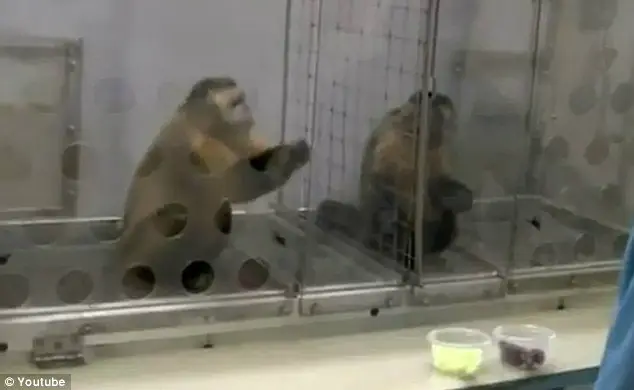
This is when the researchers introduced a little twist to the perfectly structured task-reward system. When the monkey on the right is given a grape instead of cucumber, the partner on the left notices. She does not protest just yet, cautiously carrying out a test of her own. Accepting the first piece of cucumber, she waits patiently to see how her partner is rewarded. Sure enough, when she receives the grape again, the outrage begins. She flings back the piece of cucumber at the assistant, demanding – in typical primate fashion – to re-evaluate our concept of fairness and inequality.
Philosophers over the years have heatedly denied that the pillars of morality are an entirely human construct. Consequently, they reasoned, morality cannot exist when the capacity for rhetoric is absent. Social experiments such as this have proved that claim to be false and reeking of bias. As of now, there is ample evidence that moral behaviour is not limited to the domain of humanity. Qualities of fairness, empathy, reciprocity and even empathy can be seen explicitly demonstrated by primates and other species.
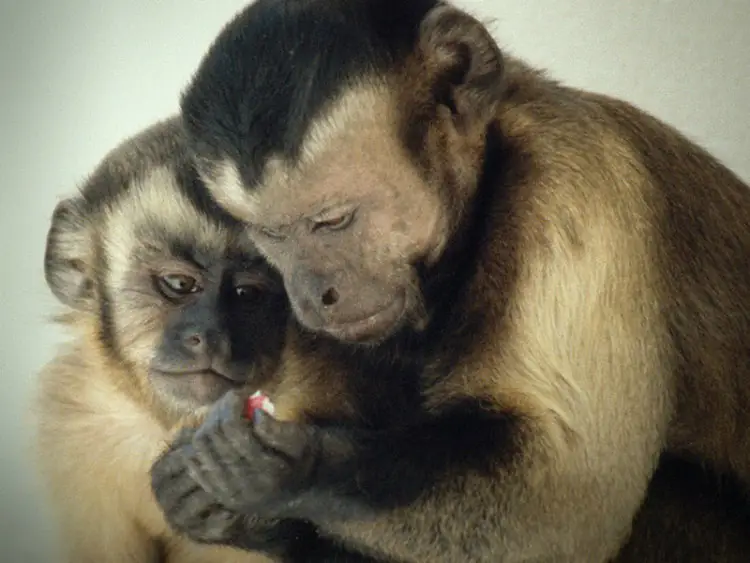
Frans de Waal says as much towards the end of his talk for TedX :
“I think morality is much more than what I’ve been talking about, but it would be impossible without these ingredients that we find in other primates, which are empathy and consolation, pro-social tendencies and reciprocity and a sense of fairness.”Â

England’s Poison Garden Has Some Of The Deadliest Plants On The Planet. It’s Surreal.

10 Bizarre True Stories that Became Documentaries
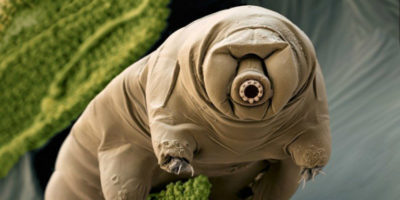
Tardigrades, the Creatures that Could Survive Seemingly Impossible Extremes

A photographer sneaks into Fukushima’s ‘Red Exclusion Zone’ and captures eerie photos of Abandoned Ghost Town

A Turkish Man, Ibrahim Yucel, Locks Himself in a Copper Helmet to Quit Smoking Cigarettes

Man Missing 90% of His Brain Lives a Normal Life

Tree Mystery of Crown Shyness: “Anti-Social” Trees that Avoid Touching each Other

10 Facts That Should Be Common Knowledge, But Aren’t


IMAGES
COMMENTS
Apr 4, 2013 · What happens when you pay two monkeys unequally? Watch what happens.An excerpt from the TED Talk: "Frans de Waal: Moral behavior in animals." Watch the whole...
Aug 18, 2020 · Injustice and inequality dominate the discourse, and rightfully so. ... A video went viral of an experiment involving two capuchin monkeys in neighboring cages. You should watch the video, but ...
But the experiment doesn't really provide strong evidence that monkeys want justice. The underpaid monkey gets angry, but we've no evidence that the better-paid monkey is unhappy about the situation.
to receive cucumber, and ‘inequality’, in which one monkey exchanged for cucumber and its partner for grape, a more favoured food. Whereas in previous tests males and females had been equally reliable exchangers, only females reacted differently to the two conditions. Compared with equality tests, females receiving the
Sep 18, 2003 · Monkeys refused to participate if they witnessed a conspecific obtain a more attractive reward for equal effort, an effect amplified if the partner received such a reward without any effort at all.
Mar 11, 2015 · Stump-tailed monkeys, by contrast, are “very tolerant and engaging.” “I usually compare them as the New Yorkers and the Californians,” he said. In one experiment, juvenile stump-tailed and rhesus monkeys were housed together for five months — during which the stump-tails’ mellowness rubbed off on their more belligerent cousins.
The monkeys did not refuse food more often in the inequity condition than in the equity condition. They refused food far less often in the free food condition than in the token-exchange conditions. The male squirrel monkeys refused food the most in the contrast condition, when given inferior food after initially having been shown better food.
What happens when two monkeys are paid unequally? Fairness, reciprocity, empathy, cooperation -- caring about the well-being of others seems like a very human trait. But Frans de Waal shares some surprising videos of behavioral tests, on primates and other mammals, that show how many of these moral traits all of us share.
Jul 3, 2024 · Social experiment on monkeys is equal parts funny and educational. Using a rewards system, scientist explored reactions to fairness. 2 monkeys were paid unequally; see what happens next - Upworthy
This monkey experiment demonstrates how primates react to unequal pay. Read on and see how they show sense  of  fairness . In a groundbreaking behavioural experiment conducted by primatologist Frans de Waal, two capuchin monkeys were given a simple task and rewarded on the basis of it.